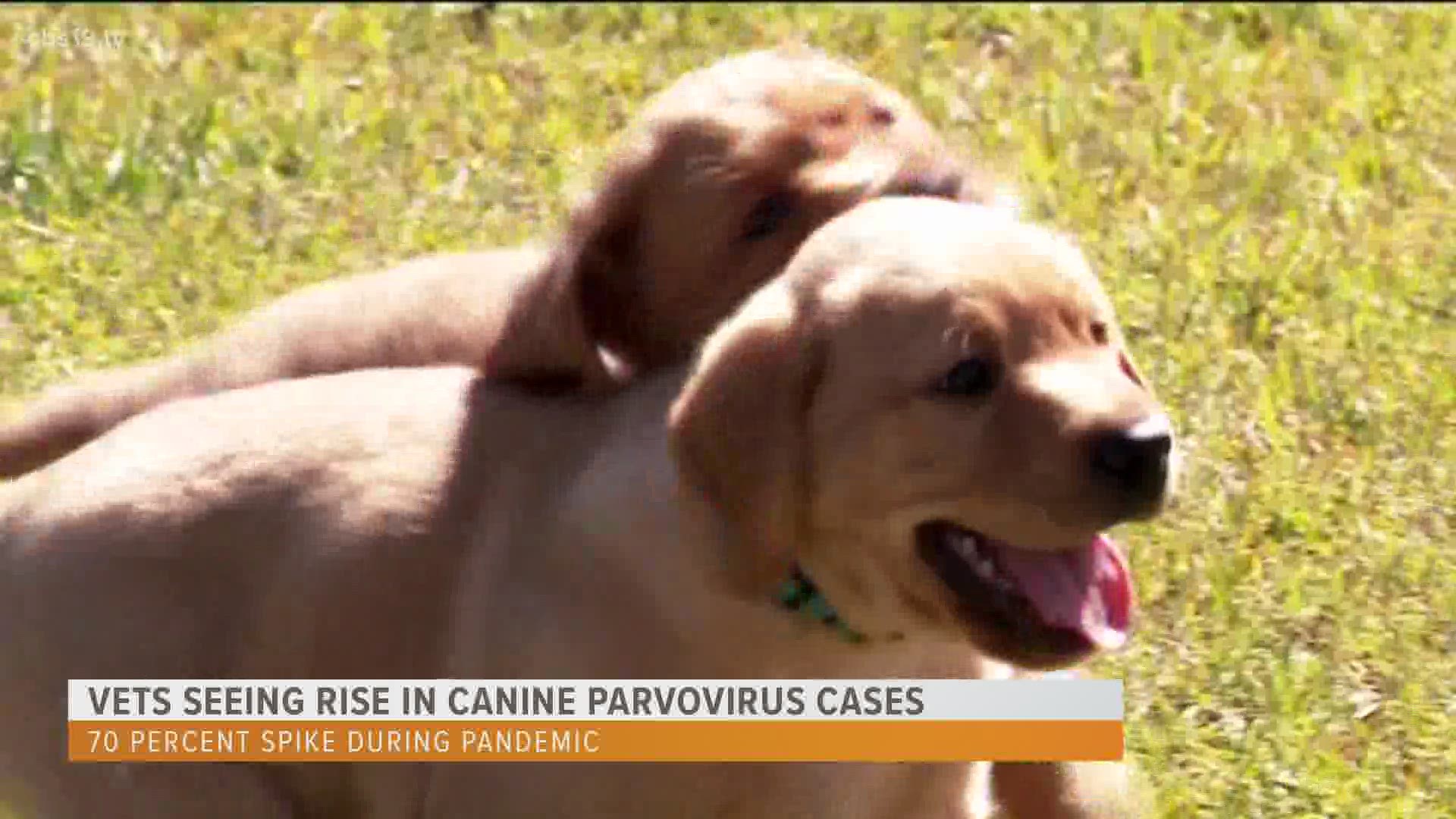TYLER, Texas — As the nation battles the coronavirus, a small number of cats and dogs have been infected with the virus, but that hasn’t stopped people from heading to the vet. In fact, veterinarians across the country are seeing more pets than normal right now.
“Here lately, we have had a surge of clients come in with puppies that are having bloody diarrhea,” Dr. Seth Shirey, a veterinarian at Starnes Animal Clinic in Tyler, said. “We test them for parvo, and sure enough, it's positive.”
Cases of canine parvovirus are on the rise in veterinary clinics across the country. Bluepearl, which operates 90 pet hospitals across the country, has seen a 70% increase in hospitalizations for the virus.
Dr. Shirey is seeing similar numbers at his clinic.
“We are seeing two to three cases a week, and that's huge,” Dr. Shirey said.
The virus, which thrives in the heat, usually slows down by this point in the summer, but Dr. Shirey says that hasn’t been the case.


According to the Baker Institute of Animal Health, canine parvovirus also known as CPV is highly contagious and causes gastrointestinal illness in puppies.
“We get very ugly, bloody watery diarrhea,” Dr. Shirey said. “We get vomiting over and over again.”
If a puppy catches the virus, it can also be fatal.
“If we can do an extremely aggressive therapy plan, I would say we save 90% of them,” Dr. Shirey said. “We can typically do a pretty good job with this, but we don't save them all, you know, even despite sometimes our very best efforts.”
He says part of the reason for the increase in cases could be from owners putting off recommended vaccinations for their puppies during the pandemic.
“If your dog is not vaccinated, do not take it to dog parks or to get groomed or to be around any dogs really, especially dogs you don't know the vaccine history of, because if they're not vaccinated in East Texas, there's a darn good chance they're going to get it,” Dr. Shirey said.
He says vaccinating a puppy for parvovirus should be first priority. If your puppy is showing symptoms of the virus he recommends bringing them into a clinic as soon as possible.
“The sooner you do, the better chance we have of keeping him or her.”
Treatment for parvovirus can cost more than $1,000. Dr. Shirey has heard people talk about giving their puppy Pedialyte, but says that’s not going to save them since treatment is very aggressive and can take up to six days if they are infected with the virus.

